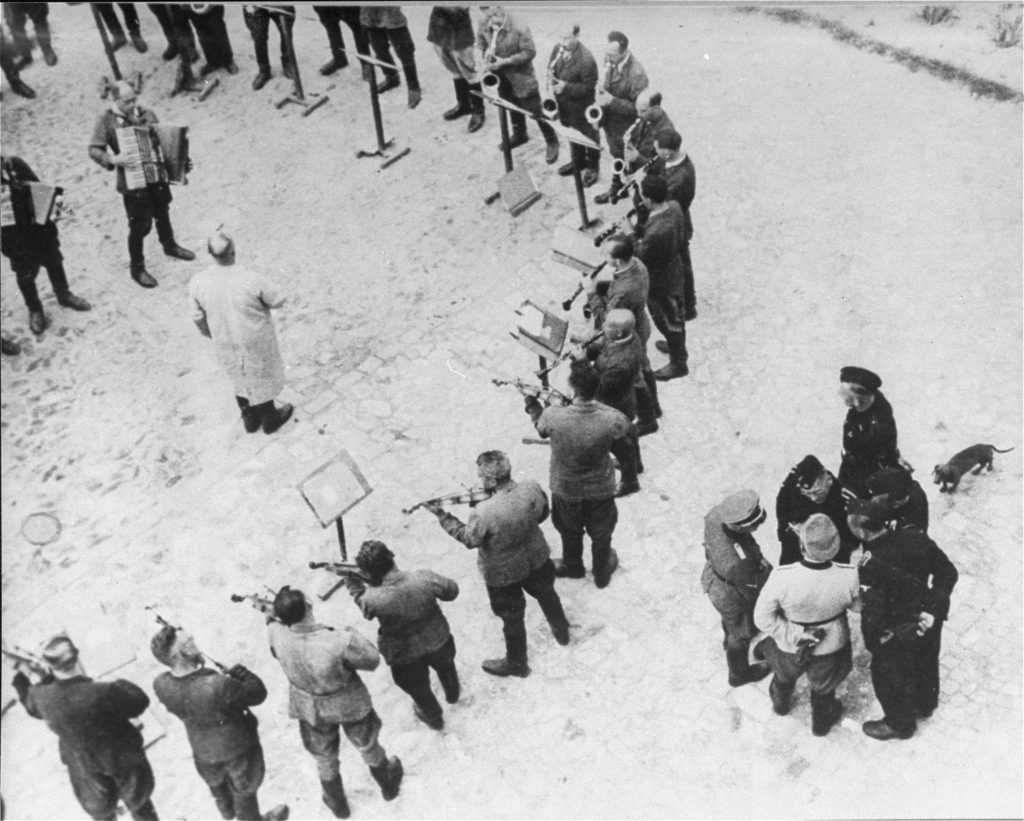
Tuesday
Art arrives to rescue us–or at least comfort us–in dark times. What would we do without literature, music, art, cinema, and the performing arts (although no live performances, alas) as the coronavirus casualty figures mount up? Former National Poet Laureate Rita Dove speaks to our need in her poem “Transit.” (Thanks to my friend Carl Rosin for reminding me of the poem.)
To be sure, “Transit” is written about a far darker period than this. It was inspired by how Holocaust survivor and accomplished musician Alice Herz-Sommer turned to music to survive her Nazi concentration camp. Dove writes about Herz-Sommer’s experience to explain her poem:
Many Jewish musicians and composers were interned at Theresienstadt, the “model” concentration camp showcased by the Nazis when the Red Cross arrived for inspection: New clothes were issued, fresh produce displayed in the “marketplace,” while the musicians played concerts and marched in mock parades. As soon as the inspectors left, grim reality returned—including death marches to mass extermination sites like Auschwitz. Even so, those whom Fate spared one more time continued to compose and perform for their fellow inmates; they even staged operas from memory. How does one retain a human yearning in the midst of such horror?
Of her performances, Herz-Sommer herself wrote,
Whenever I knew that I had a concert, I was happy. Music is magic. We performed in the council hall before an audience of 150 old, hopeless, sick and hungry people. They lived for the music. It was like food to them. If they hadn’t come [to hear us], they would have died long before. As we would have.
Dove’s poem begins with the opening line from Shakespeare’s Twelfth Night. Music is more than the food of love, however—it also is fundamental to survival, allowing us to pull ourselves, rung by painful rung, with barely “a fingertip’s purchase,” “across the unspeakable world.” We may be limited to black water passing for coffee and white water for soup, but we can still sup on Chopin.
The black and white soup appears to refer also to the music played for the rigged parades in which the prisoners marched and performed to deceive Red Cross observers. (As Dove puts it, “to soothe regiments/ of eyes, guilt-reddened/ lining the parade route.”) Art can be twisted to perverted ends. But while Dove “won’t speak judgment on” the “horn flash, woodwind wail” of such music, nothing matches how
in the midst of horror
we fed on beauty—and that,
my love, is what sustained us.
“Transit” may refer both to how Theresienstadt inmates would be shipped to Auschwitz and to how, for a moment, they moved into “the house that music built.”
To maintain your mental equilibrium as you settle in place, read novels and poems, listen to music, gaze at art works, feast upon films, and watch televised plays and dance performances. The arts will sustain you.
Transit By Rita Dove If music be the food of love, play on. This is the house that music built: each note a fingertip’s purchase, rung upon rung laddering across the unspeakable world. As for those other shrill facades, rigged-for-a-day porticos composed to soothe regiments of eyes, guilt-reddened, lining the parade route (horn flash, woodwind wail) . . . well, let them cheer. I won’t speak judgment on the black water passing for coffee, white water for soup. We supped instead each night on Chopin—hummed our grief- soaked lullabies to the rapture rippling through. Let it be said while in the midst of horror we fed on beauty—and that, my love, is what sustained us. [Alice Herz-Sommer, survivor of the Theresienstadt ghetto / concentration camp]

